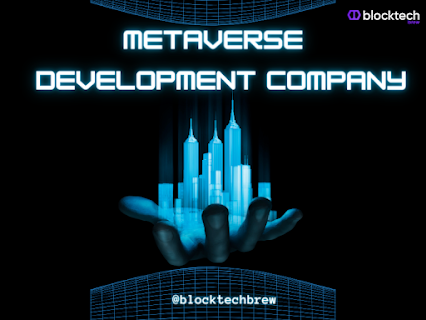The Future of the Metaverse: Exploring the Latest Trends and Innovations
The metaverse is a virtual universe where people can interact with each other and digital objects in a shared space. The concept of the metaverse has been around for a while, but it has recently gained more attention due to advancements in technology and a renewed interest in virtual reality. In this blog, we will discuss some of the latest metaverse trends that are shaping the future of this digital realm.
NFTs in the Metaverse
Non-Fungible Tokens (NFTs) have become incredibly popular in the last year, and their use is now expanding to the metaverse. NFTs allow creators to tokenize their digital assets, such as art, music, and other virtual items, and sell them to collectors. In the metaverse, NFTs could be used to buy virtual land, unique avatar skins, or even access to exclusive events. The rise of NFTs in the metaverse is expected to create a new digital economy, where users can buy and sell virtual assets with real-world value.
Virtual Real Estate
Virtual real estate is another emerging trend in the metaverse. Just like in the real world, virtual land can be bought, sold, and developed. Companies like Decentraland, Somnium Space, and The Sandbox are creating virtual worlds where users can buy land, build virtual buildings, and monetize their creations. As the metaverse continues to grow, virtual real estate is expected to become an important asset, with some experts predicting that virtual land will be worth billions of dollars in the future.
Socializing in the Metaverse
Socializing is a fundamental part of the metaverse experience. The ability to interact with other users in a shared virtual space is what makes the metaverse so appealing. Companies like Facebook and Microsoft are investing heavily in the metaverse, with plans to create immersive social experiences. Facebook's Horizon Workrooms is a prime example of this trend, allowing users to collaborate and socialize in a shared virtual space.
Gaming in the Metaverse
Gaming has always been a significant part of the metaverse, and it continues to be a driving force behind its growth. Games like Fortnite, Minecraft, and Roblox are already blurring the lines between the real world and the metaverse. These games offer players the ability to create, explore, and socialize in a virtual environment. As the metaverse continues to expand, we can expect more gaming experiences that push the boundaries of what is possible in a virtual world.
Metaverse Interoperability
Interoperability is another trend that is gaining traction in the metaverse. With so many different virtual worlds and platforms, it can be challenging for users to move between them. Companies like Immutable X and Decentral Games are working to create interoperable metaverse experiences that allow users to transfer assets and data seamlessly between different platforms. This trend is expected to create a more open and connected metaverse, where users can move freely between different virtual spaces.
In conclusion, the metaverse is an exciting and rapidly evolving space that is transforming the way we interact with each other and the digital world. The trends we have discussed in this blog are just a few examples of the many ways the metaverse is changing and growing. As we move forward, we can expect to see even more innovation and new possibilities in the metaverse.
Things to remember while chosing a Metaverse Development Company
When choosing a metaverse development company, it is essential to look for a team with expertise in virtual reality, blockchain technology, and game development. These skills are critical for building a metaverse that is immersive, secure, and scalable.
Here are some factors to consider when selecting a metaverse development company:
- Experience: Look for a company with experience in developing metaverse projects. A company with a proven track record can provide you with valuable insights and help you avoid potential pitfalls.
- Technology: A good metaverse development company should have expertise in virtual reality, blockchain, and game development technologies. These skills are necessary for building a secure, scalable, and immersive metaverse.
- Collaboration: The company should be willing to work closely with you to understand your needs and requirements. They should be able to provide you with regular updates and involve you in the development process.
- Reputation: Check the company's reputation and client reviews to ensure they have a history of delivering quality work and meeting deadlines.
- Flexibility: Choose a company that is flexible and can adapt to your changing needs. A good metaverse development company should be able to adjust their development process to meet your specific requirements.
In summary, when selecting a metaverse development company, look for a team with experience, expertise in relevant technologies, willingness to collaborate, positive reputation, and flexibility.




Comments
Post a Comment